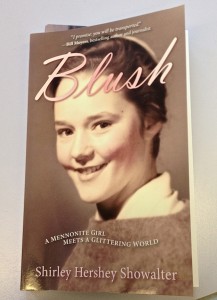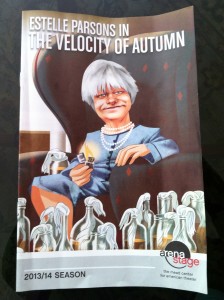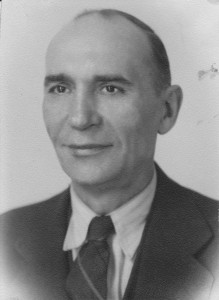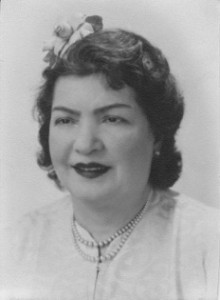Here we are just a little over two weeks before Christmas and I’m not in panic mode. I don’t think I’ve ever spent a Christmas without being completely overwhelmed by all that had to be done and the impossible expectations I set for myself. I’ve run into a number of people over the past week or two who have mentioned that they have way to much to do and little time to accomplish even the most important things for them. That sounds very familiar to me but I’ve had to smile at myself and pat myself on the back for not being driven to distraction by the usual holiday stress mess. So what’s the difference between this year and the past? Firstly, we usually go down to North Carolina to be with our daughter, her partner and grandkids. Last December we all decided that it might be fun to just have our own individual holiday celebrations this December. It sounded like a great idea to me and though I’m especially going to miss Noah and Zoe, I think it will be good for them to just be with their two moms, doing something more laid back and simple, than entertaining their grandparents. I’m extremely grateful that I don’t have to prepare for a trip. I generally don’t like to travel on holidays of any kind because of the traffic and the rush-rush attitude I tend adopt in order to get ready to hit the road on time. And to be honest, long car trips are not one of my favorite activities at this point in my life. Being fairly active, even an hour of sitting in the car, brings on joint stiffness and it takes a lot of work to iron it all out. It’s at least a six hour trip down to North Carolina, without pit stops. After our trip to London in October and the almost eight hours of sitting on the plane, one-way, I’m particularly happy to stay put this year. Mark and his family, who live nearby, will be away, so Bill and I are planning a very quiet day. We will go to a few parties in the neighborhood during the week and treat Christmas itself as a day to relax, without stuffing ourselves with way too much food. Maybe we’ll go out a see a movie, and if the weather is nice spend some time wandering about with our dogs, who always love to visit new walking spots. The smells are different from their usual stomping grounds and they may well get to make friends with dogs they’ve never met before. The other thing that’s helped keep my stress at a low level is that since the day before Thanksgiving I haven’t been shopping except to go to the grocery store. Everyone in the family will get gifts, but they’ll be things I’ve purchased on line, and sent directly to the recipient. In other cases a gift of some money will help those out who need a little extra cash this year. By staying away from all of the stores, I keep myself from being in contact with the holiday grouches and those in such a hurry that they mow everyone down in front of them. We’ll keep our Christmas meal simple like we did at Thanksgiving when I made Eggplant Parmesan, a big tossed salad, and apple crisp for desert, all gluten-free and delicious. I haven’t yet decided what I’ll make for Christmas dinner, but you can be sure it will be something simple. Gone are the days when I enjoy an overloaded table of food and then have to take five mile hikes for the next two months to lose the pounds I gained. If there will be any stress, it might be over some renovations our house will be undergoing come January sixth. We’re getting a new hardwood floor installed in the kitchen. The hard, uneven slate floor that was in place when we bought this place has not been easy on my legs and back. I’m very excited about spending more time cooking comfortably. We’re also demolishing the powder room on the main floor and will be moving the washer and dryer into that space from the basement, making it unnecessary to climb steep stairs while clutching an overloaded basket of laundry. They’ll be situated right next to our bedroom, making doing laundry much more easy. I’m sure there will be stress enough living without a kitchen and laundry facilities for about four weeks. But in the end when it is done I’ll be able to swing back into my regular life and proceed as usual, but much more easily. In the meantime I’m working on Part Three of my memoir. I am pleased that I allowed myself to forget my October first deadline for finishing the first draft of the entire book. The trip to London, even though I was sick for part of it was just what the writing doctor order. Taking my time with it has opened up a new avenue for the way I’m handling the last part of my story and so far it’s it’s really going well. It’s taken me a long time to figure out how to reduce strain and worry, especially during the holiday season. Do you have special ways of handling holiday stress?
Book Review: Blush, A Mennonite Girl Meets A Glittering World
 While away in London, I read and reviewed Aimee Wise’s, Of Human Clay. Having set the tone with her “spiritual” memoir, I was eager to continue my reading adventure with another: Blush, A Mennonite Girl Meets A Glittering World, by friend, Shirley Hershey Showalter. Having two women I know publish memoirs simultaneously is thrilling. And both authors have helped me to understand my own need for spiritual comfort and have left me wanting to know more about how spirituality and religion becomes part of our lives and how it effects those around us.
While away in London, I read and reviewed Aimee Wise’s, Of Human Clay. Having set the tone with her “spiritual” memoir, I was eager to continue my reading adventure with another: Blush, A Mennonite Girl Meets A Glittering World, by friend, Shirley Hershey Showalter. Having two women I know publish memoirs simultaneously is thrilling. And both authors have helped me to understand my own need for spiritual comfort and have left me wanting to know more about how spirituality and religion becomes part of our lives and how it effects those around us.
Though each of these women has a different story, a different religion, and culture to deal with, the frustrations and tensions apparent in both stories, are similar. Regardless of what church, synagogue, or temple one worships in, our struggle to be faithful to our God, while being human beings with wants and needs that may fall beyond what we are permitted, are universal.
While Aimee’s book brought back twinges of my early anger with the Catholic Church, I was charmed and delighted with Shirley’s memories of growing up in a conservative, Mennonite farm community in Pennsylvania. Her wish “to be big,” not in the sense of being tall, “but big as in important, successful, influential,” went against all that her church and family represented. To be Mennonite was to be plain and simple: in dress, speech and in all behaviors. To be female and wear a prayer covering on one’s head was to stick out like a sore thumb … part of a religious subculture that a good part of the rest of the world doesn’t notice or choose to explore. In large societies like our own, we’re all too quick to point fingers at and make sometimes cruel jokes about those who are different from the rest of us. Whether it’s our skin color, religion, political affiliation, or sexual orientation, there is always something to gossip and make nasty judgements about.
Reading through Shirley’s memories of her first eighteen years of life, I was struck by how “BIG” she was even when she was small. She seems to have had an intuitive side that brought her through difficult moments in a family and church that she went along with and believed in, despite having her own dreams and aspirations for something more. And though following most of the rules, she never became the expected Mennonite wife, wearing a prayer covering, raising a handful of kids, and helping her husband by doing whatever is necessary to run a sometimes not so profitable farm. Shirley seemed to know, if only on an unconscious level, that she would be more, while still respecting and hanging on to the structural ideals of her church and family. She has done more than succeed as a past president of Goshen College and her work with the Fetzer Institute.
From the beginning, Shirley, named by her mother after the famous child star, Shirley Temple, loved to be with her dad, riding along with him on the tractor and helping out in the other innumerable daily farm chores. Later when her brother and sisters came along, she loved being their teacher, showing them the ways of the natural world, the church, their family and even perhaps the glittering world beyond her parent’s farm. She “blushed” her way through awkward moments when she could barely contain her urges to go beyond what was expected of her. Her parents seemed to understand her concerns and differences with the Bishops of the Mennonite community, allowing her to think for herself while guiding her with gentle kindness.
Of the many heart-warming stories in this memoir, one of my my favorites is when her brother, Henry, gets a “new” second-hand bicycle. Envious of her brother’s good fortune and frustrated by her own old and worn out bike, Shirley, tries to paint hers in an effort to make it look better using odd cans of paint stashed in the barn. She never asked permission to do so and makes a huge mess that most parents would have a huge fit about. When Shirley tells her dad, about her misadventure, adding that “I think you must love Henry more than me,” he purchases the proper paints, takes her bike apart, and repaints it to make it look almost like new. Though her mother reminds her about “envy,” her father doesn’t lecture her on what she has done wrong. This special love and Mennonite kindness, prevails throughout the book, making me wish at times that I had grown up as a member of her family.
Filled with interesting tidbits about the history of the Mennonite church, family stories, along with recipes, footnotes and a glossary of terms I had little to no clue about, Shirley’s book took me on a journey through her early life and who and what has influenced her to become the woman she is today. She says it all best in the final pages of her book in, “Why I Am (Still!) a Mennonite.”
In the complicated world we live in, reading Blush, was for me a calming and refreshing visit to a simpler, less thorny way of living.
The Velocity of Autumn
 This past weekend we took another one day trip up to the Arena Stage in Washington, DC to see The Velocity of Autumn, a ninety-minute, one act play, by award winning playwright, Eric Coble. And oh, what a fantastic show. This two person play, starring Academy Award winner Estelle Parsons, (Bonnie and Clyde) and two-time Tony winner Stephen Spinella, (Angels in America) had me rolling in the aisles with laughter and teary eyed with sadness all at the same time.
This past weekend we took another one day trip up to the Arena Stage in Washington, DC to see The Velocity of Autumn, a ninety-minute, one act play, by award winning playwright, Eric Coble. And oh, what a fantastic show. This two person play, starring Academy Award winner Estelle Parsons, (Bonnie and Clyde) and two-time Tony winner Stephen Spinella, (Angels in America) had me rolling in the aisles with laughter and teary eyed with sadness all at the same time.
Artistic Director at the Arena, Molly Smith, says in her program notes, “We find ourselves in the middle of some of the most powerful questions we face as human beings. When does one step in to help a parent and when does one stay out? What happens when family members are unequally engaged? Whose responsibility is it anyway? What happens when authorities step in? Police, social services, doctors: What is this thing we call control and how long do we get to hold onto it? How much are we like our parents – what is nature and what is nurture?”
The play is about seventy-nine year old artist, Alexandra, and her war with her children who want to put her in a nursing home. She’s surrounded herself with explosives in bottles and jars wicked with rags, while in her hand she holds an old Zippo lighter that once belonged to her husband. Her front door is barricaded with furniture. She’s determined to be left alone, and is ready to blow herself, the building, and the whole block up if her daughter and one of her sons, send in the police to drag her away.
As the play opens Alexandra is asleep in her easy chair with classical music playing in the background. Her youngest son Chris, also an artist, climbs up the magnificently autumn colored tree just outside her large bay window. He opens the sash from the outside, climbs into the room, scaring his mother who is ready to light the fuse on one of the bottles.
Chris and his mother have not seen or talked to each other for years since he ran off to explore the world and discover who he was becoming. Chris, commandeered by his sister and brother to help bring their mother to her senses, is greeted with Alexandra’s rage. Mother and son connect as Chris listens to her wishes to be left alone, to watch her tree grow outside her window, living in her own home of some forty years. Through shared memories of past visits to New York’s finest art museums when Chris was small and a budding artist himself, they of begin to find balance, coming to terms with what lies ahead.
As we walked out of the theatre after the show, I told Bill, “I understand much better what my mother was going through during the last years of her life.” About to turn seventy-one in November, this poignant discussion about aging, independence, and family, helped me to understand how quickly the autumn of our lives comes upon us and the difficulties we face when we insist upon being by ourselves as our coping skills become less than what they were.
I found myself suffering along with Alexandra, needing to be in control and left to her own devices. But as the child and caretaker of a now deceased mother, I also understood Chris and his siblings’ need to protect their parent and the community around her. Chris unlike his absent siblings, brings sensitivity to the conversation and the war comes to a close.
I remember how terrible I felt when I told my mother that it was time for her to turn over her car keys to me. She’d been visiting the body shop almost monthly to repair the dents and dings her car accumulated while she was out and about being independent. Afraid the problem might one day grow into harming another person, I asked her to give up her car. I watched her spirit shrink as she lost her independence. I’ve spent hours wondering how I will feel if and when I find myself in the same position.
Despite future possibilities, I’m enjoying my elder-hood. It is a joyous time. I have more freedom than I’ve ever had in my life. I am not an old lady who sits on her porch in her rocking as the world goes by. I’ve been around and learned some amazing things about life and survival. And I keep moving on. Should I ever face what Alexandra faced, I hope I’ll not surround myself with explosives. I’d prefer to take joy in what I have and can do to live each day as a reward for sticking it out through the bad times.
This show is on its way to Broadway. With all the Baby Boomers coming of age, I think it will be a hit. Don’t miss it!
Shouldering My Shoulds
 A few days ago as I was working on my memoir, I wrote, “Though he has broad shoulders, I should not lean on them as much as I do.” Seeing the words “shoulder” and “should,” just one word apart from each other stopped me in my tracks. They are words with different meanings. Their spelling is alike, except for the “er” in shoulder. And they are very much related, especially in the way we use them today.
A few days ago as I was working on my memoir, I wrote, “Though he has broad shoulders, I should not lean on them as much as I do.” Seeing the words “shoulder” and “should,” just one word apart from each other stopped me in my tracks. They are words with different meanings. Their spelling is alike, except for the “er” in shoulder. And they are very much related, especially in the way we use them today.
I looked up the meaning and origin of each word. According to the Merrriam-Webster Dictionary, the word should comes from “the middle English word, sholde and the Old English word sceolde.” One of its many uses is “in auxiliary function to express obligation, propriety, or expediency.”
Shoulder on the other hand “in Middle English is sholder from Old English sculdor; akin to Old High German scultra.” We of course know it to mean the part of the body between the neck and the tops of our arms. It can also mean to carry a burden or to push through.
I first heard the expression, “Don’t should on me,” years ago at one of the first Alanon meetings I went to. Dealing with my mother’s alcoholism and another family member’s drug habits, I went to those meetings to find my way through the maze of how to live my own life while being a family member with concerns about my loved ones. My mother-in-law had also been an alcoholic when she was alive and I’d successfully made her into my worst enemy by telling her that if she really loved her son and her new grandson, she shouldn’t drink.
It was years before I learned that “should” doesn’t mean anything when it comes to addiction, whether it’s to alcohol, heroin, or food. Addiction is a disease that is genetic and runs in families. It is a biological urge that is difficult, if not impossible to overcome.
I have always been a “shoulder.” Should is a frequent part of my speech no matter who I’m talking to, and especially when it comes to myself. “I should go to the gym four times a week, I shouldn’t eat too much dessert, and I should be more patient,” are always on the tip of my tongue. It was a family pattern I grew up with. I was constantly being told I should or shouldn’t, as in “You shouldn’t be seeing that boy. You should be seeing someone closer to your own age.”
I’ve also been one big “shoulder.” I’ve carried a lot of stuff belonging to other people on my shoulders so that they would feel less pain. I’ve always hated watching people, especially my family and innocent creatures like dogs, cats, and horses suffer. So in order to keep those I love from painful predicaments I often try to carry their baggage for them. When it came to my parents, I was their go-between when they fought. I became the family “fixer” who knew just what to say to calm everyone else down, while I broke apart from the weight.
I’ve been known for taking the reins when someone falls off their horse and lies on the ground broken and in pain. I took my mother in during her last years, caring for her as best as I could, often at my own emotional expense. I know now that I shouldn’t be carrying anyone else’s baggage but my own. But it’s still a tendency and I’m working hard at being less prone to that way of life. I’m being fairly successful, though now and then I find it particularly difficult to pass up taking in a stray dog or cat.
The pinched nerve in my neck/shoulder area is almost 100% better. I think it had something to do with a should. The one in which I said I should have my first draft done by October first. Well, it’s not going to happen and that’s fine by me. I’m learning to listen to my body when it tells me what I should and shouldn’t be doing.
Are you a “shoulder?” If so, what makes you want to take on the weight of the world?
Writing Poetry As Memoir
I’m in the process of recovering poems that I have written over the years. I thought that I had lost them when I transferred all of my data from my old computer to the most recent one. But with the help of the folks at our new Peach Mac Store, I was able to find them again and now am saving them as word documents.
Some of the poems fit into the genre of memoir. The one I’m sharing with you in this post, is what Sundays were like when I was ten or eleven years old, when we would go to my grandparents home for Sunday dinner. Sometimes we arrived early enough to help with all of the preparations. My grandparents were from Poland and they did things the way they would have done in the old country.
The word Babcia is Polish for grandmother and Dziadzio is Polish for grandfather.
Pozywic
(pozhí-veech), is the Polish verb to nourish, feed, refresh
Babcia rises early kneads loaves
foaming with yeast set with amber jewels
scrubs spent trousers socks and sheets
feeds them between clenched wringer jaws
She holds a squawking hen
against the block the body flies
searching for its own lost head and then
hanging upside down from the apple tree
paints the grass below I pull fists full of feathers
watch with sickened awe her hand disappearing
pulling ribbons of yellowblue guts unsown seed
My brothers and I gather baskets of beans lettuce
she collects dried shirts socks
punches dough pressing pockets
for mashed potatoes farmer’s cheese
sauerkraut with caraway stuffs sliver
of garlic beneath fat blanketing the roast
The chicken swims with carrots
onions parsley filling the kitchen
wisth Sunday smells I stand
on the table under the arbor
picking grapes then in the garden
where rhubarb hides me
fill on gooseberries and currants
This feast takes all day we gallop
in and out playing Lone Ranger and Tonto
waiting for Dziadzio to carve the roast
share crackled fat crusty rye dipped in pan juices
Joan Z. Rough



